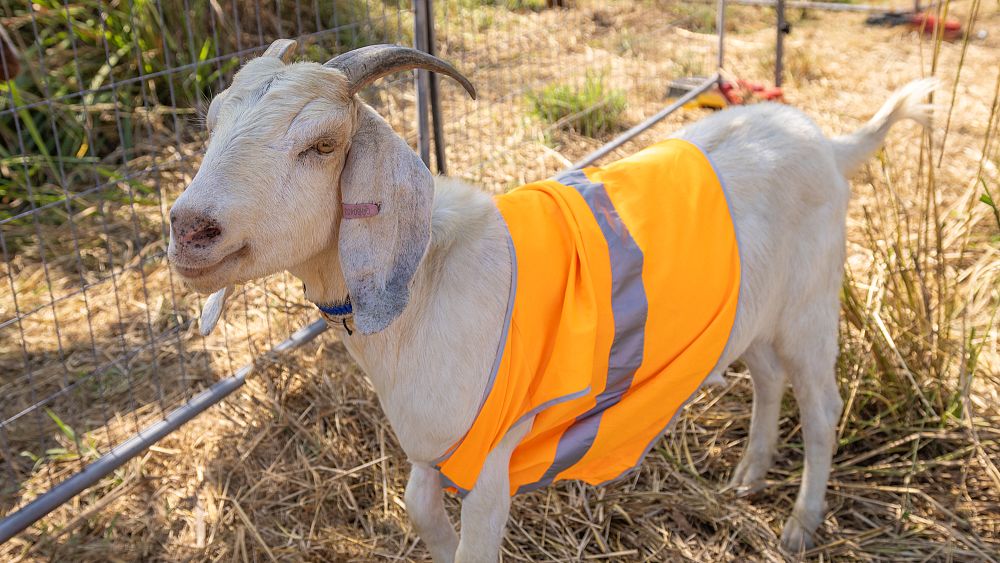A herd of goats could become a surprising member of the maintenance team for an Australian rail company.
Queensland Rail (QR) was looking for a speedier solution to eliminating weeds and grass that posed a fire risk along lines near Tully in Far North Queensland.
A group of 15 goats was brought in for a trial and given an 8-12 week deadline to clean up “the toughest of weeds” in the overgrown area.
The animals proved to be diligent workers and particularly adept at reaching inaccessible areas - so much so that they might receive further employment offers.
Goats used to clear overgrown railway lines in Australia
The weed-destroying goat herd was deployed to tackle an area between railway tracks and Banyan Creek where vegetation was out of control.
The 15 animals proved a great success, nimbly leaping into hard-to-reach areas and nibbling away at the undergrowth in a third of the time they were allotted for the task.
"It's been four weeks and they've annihilated the three different parts of that area," QR vegetation manager Glenn Withers told Australian broadcasters ABC News.
Goat graze on grasses posing fire risk
The clearance had become imperative after dry grasses reaching two metres high across a 0.02 kilometre square area had become a bushfire risk.
In some areas, human workers had been able to replant with less flammable native species.
But the final 5,000 metres squared - clogged with rainforest plants and wattles - was proving a challenge.
After discussions with landscaping contractors Norveg, Withers decided to experiment with goats.
"We just wanted to see what they'd eat, what they wouldn't eat, and how quickly they do it," he said.
Goat herds may be more environmentally friendly
As well as being prolific workers, the goat herd may be a less damaging solution for the environment.
“Goats are a safe and environmentally friendly way to clear overgrown vegetation without the use of heavy machinery or herbicides,” says Scott Cornish, QR’s head of regional.
“In addition to their extensive chomping experience, they are able to manoeuvre around the most hard-to-reach places, climbing steep and rocky terrain with ease – spots that our heavy machinery simply can’t access.”
The animals graze not only on the plants themselves, but also on the seeds meaning invasive weeds are prevented from regrowing and the use of herbicides could be reduced.
“This will help reduce future vegetation management costs by allowing local native rainforest trees and shrub seeds to germinate and gradually revegetate the whole one-acre area,” adds Cornish.
Keeping the goats safe
Though the goats are proving useful, moving to full-time employment means ensuring the animals’ safety, which Norveg co-owner Christina Forrest told ABC News was not “straightforward.”
"They need to be kept safe and fed and watered and safe from predators," she said.
QR have installed CCTV and fencing to create a secure goat enclosure, well away from the rail corridor.
“This protects them from both predators and from escaping and wandering into any rail or nearby road traffic,” says Cornish.
Although goats might not be the best maintenance solution throughout the QR rail network, Withers has earmarked a 0.2 kilometre square site in Townsville choked with the invasive but goat-friendly weed leucaena.
"Who knows? With fencing and funding we could probably put them in the general rail corridor in some parts as well," he said.


